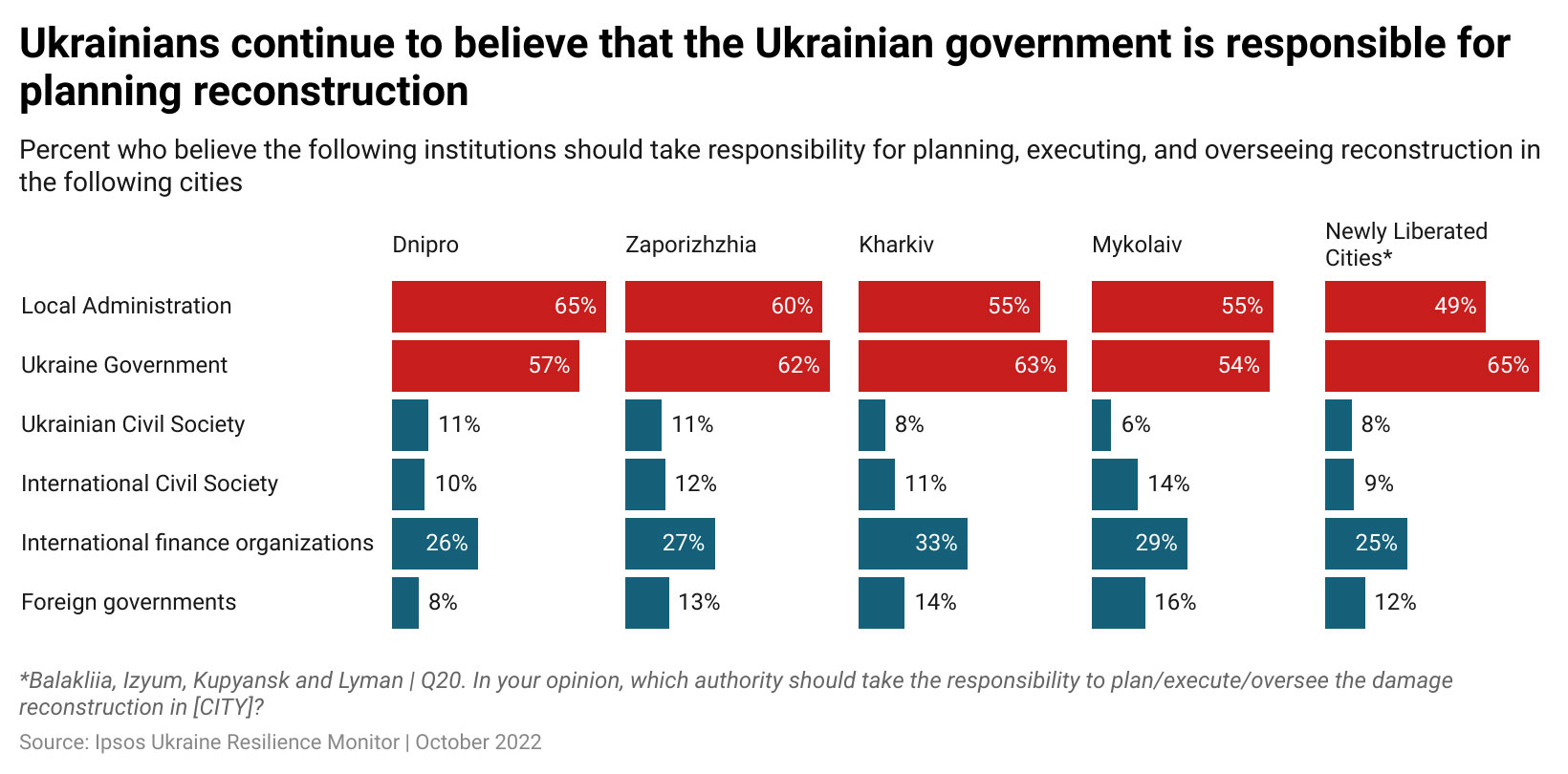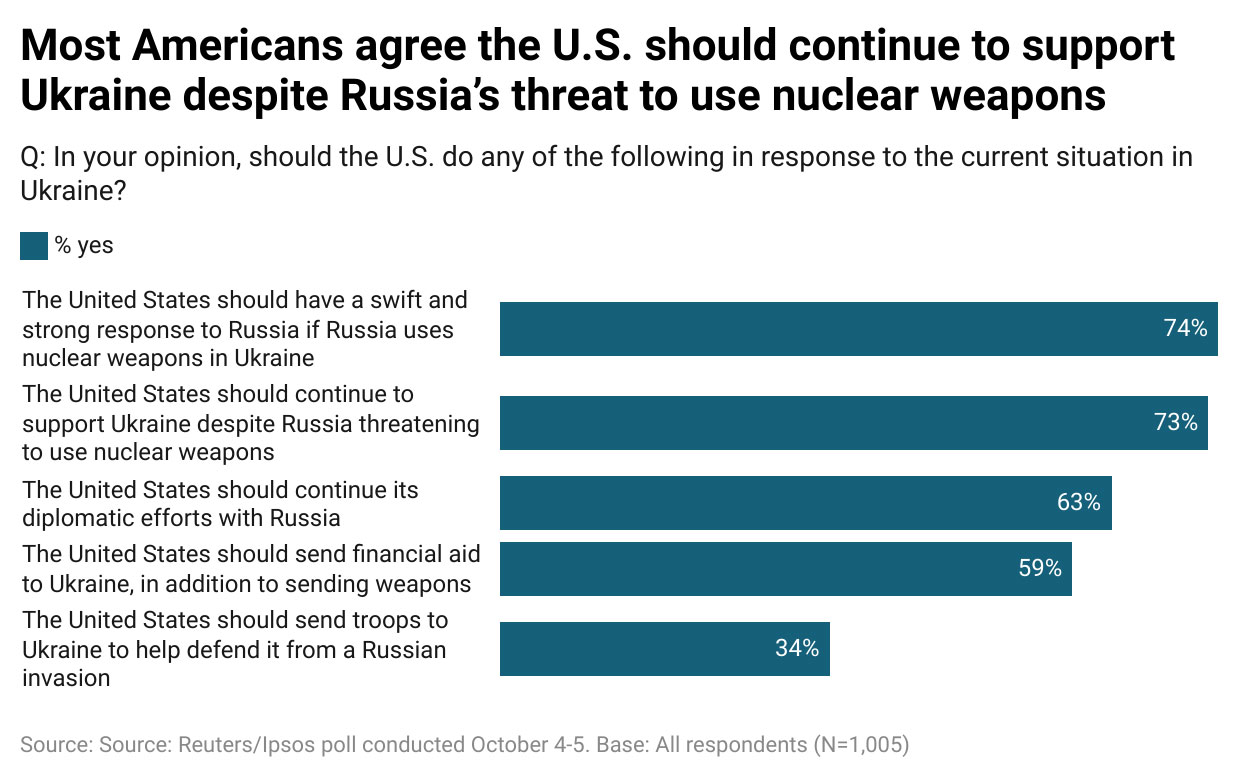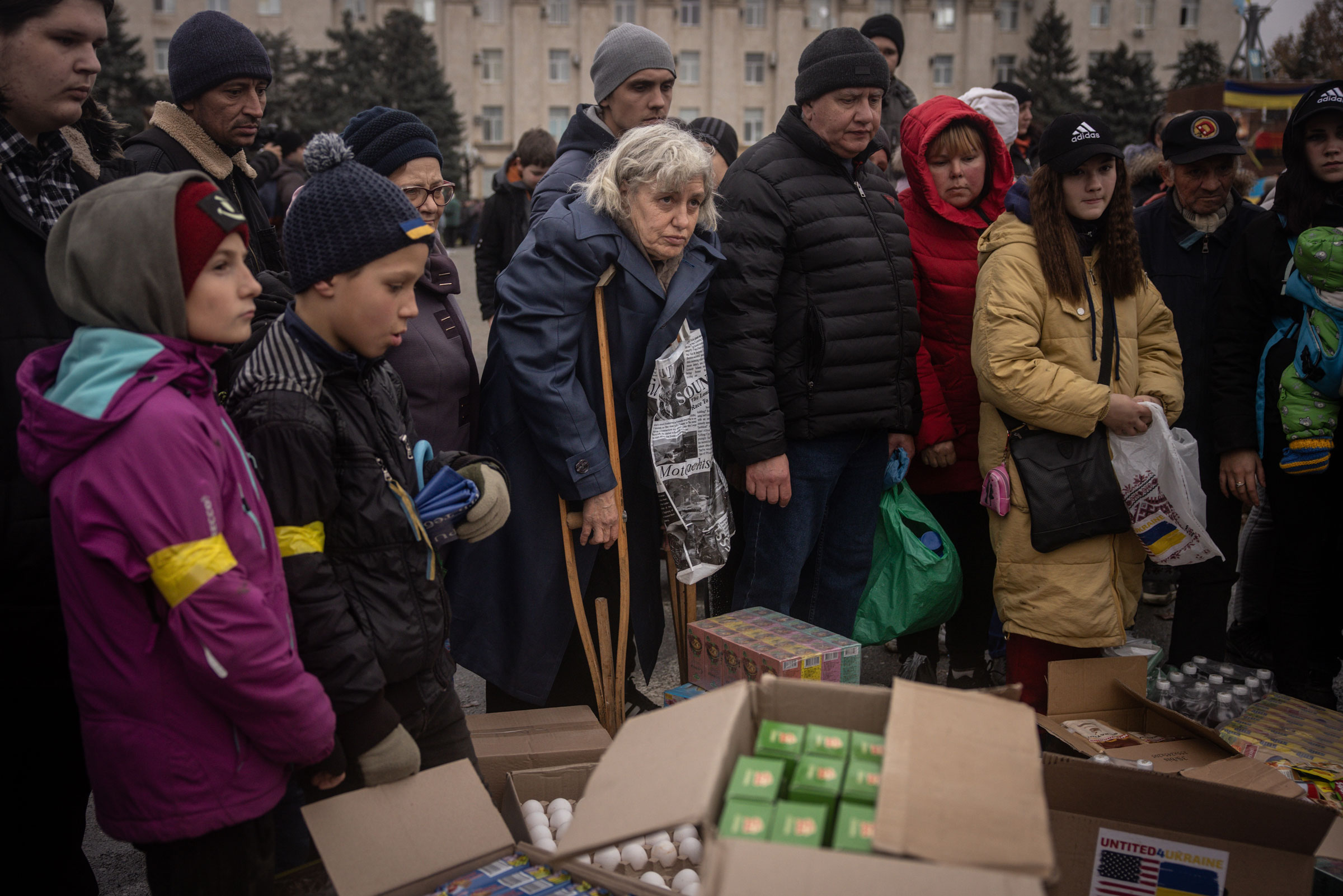The Ukrainian liberation of western Kherson Oblast on November 11 was a major victory. It has not ended the terrible pressure under which Ukrainians find themselves, however. Russian President Vladimir Putin unleashed another wave of missile attacks almost immediately after Ukrainian President Volodymyr Zelensky outlined the terms on which Kyiv would be prepared to negotiate. These Russian attacks emphasized their willingness and effectiveness at inflicting extensive damage to civilian infrastructure in an effort to reach their political objectives. The outcome of this war will turn partly on the West’s willingness to continue supporting Ukraine but also on the fortitude of Ukrainians themselves. On the latter point there is cause for much optimism.
Ukrainians are showing remarkable resilience under increasingly sophisticated Russian attacks which target access to basic services and critical civilian infrastructure. In the past few weeks, Russian aerial strikes and kamikaze drone attacks have destroyed 40 percent of Ukrainian energy infrastructure and left 80 percent of Kyiv houses without water. In Kherson, the retreating Russian forces damaged power stations, heating systems, TV tower. Ipsos analysis of nightlight shows the city going completely dark on November 9th. Despite this, overwhelming majorities of Ukrainians who had to leave their homes near the front lines or in areas recently liberated from Russian occupation want to return home and rebuild their country, recent Ipsos polling shows. Ongoing Russian attacks on Ukrainian civilian infrastructure are likely to continue depriving growing numbers of Ukrainians of heat, hot water, and clean water going into the winter, and Ukraine will need Western help beyond military assistance to survive these attacks and rebuild. Providing that help is in America’s interest, and according to recent Ipsos polling, Americans agree.
An Ipsos survey conducted October 7 through 20 in the frontline cities of Mykolayiv, Dnipro, Zaporizhzhia, and Kharkiv and in newly liberated towns of Balaklia, Izyum, Kupyansk, and Lyman in Kharkiv and Donetsk Oblasts found that four in five respondents who left since the invasion intended to return home despite the difficult conditions they are likely to find. This is due to the fact that unlike in many recent refugee crises, majority of Ukrainian refugees are women, elderly and children who are separated from their conscripted husbands, fathers and brothers. This factor as well as close-knit sense of belonging to a place and pre-established community-based kinship and business networks are likely driving this desire to come back home.
These statistics are both surprising and unsurprising. One assumes that most people would prefer to return to their homes when driven out by war, yet many wars generate large-scale long-term refugee and migrant populations that strain host countries. The unique demographic profile of Ukrainian refugee and dogged determination of Ukrainians to return to their loved ones, regardless of often badly damaged homes and towns offers cause for optimism that this war can be different. The recent Ipsos survey in Poland, for example showed that 80 percent of Ukrainian refugees plan to come back within the next two years.
Read More: As Winter Descends, Europe Cools on Ukrainian Refugees
Helping Ukrainians bring stable peace and reconstruct their country is in everyone’s interest. The U.S. and Europe would prefer to avoid another migrant population, but this can only be accomplished if strong and recovering Ukraine stands as a bulwark against future renewed Russian aggression. The more the West helps Ukraine regain and recover the territory it needs to be economically and militarily stable now the less help Ukraine and Ukrainians will need from the West in the future. Aiding Ukraine today is an investment and an insurance policy, not a handout.
Ukraine needs a lot of help urgently. It requires continued military assistance to defend against continuing Russian attacks and to regain vital parts of its country. It also needs prioritized financial and economic help to repair the damage Russian forces continue to inflict. The Ipsos survey in the recently liberated areas also shows some of the challenges they will face. Only 29% of respondents from Mykolaiv and 66% from the newly liberated towns reported that they have access to safe drinking water. Only 37% of respondents from Mykolaiv and the newly liberated areas and 52% in Zaporizhzhia said they have access to hot water (which is centrally generated and distributed in post-Soviet countries).


Fewer than 57% in Kharkiv, Mykolaiv, and the newly liberated cities have heat. Unemployment is also severe in these areas, with only 22% reporting that they are employed in the newly liberated areas, 39% in Mykolayiv, 43% in Kharkiv, and 51% in Zaporizhzhia. These are dire situations for the people already there and present daunting challenges to the refugees who want to return to their homes.


Ukrainians continue to look to their government to rebuild their country rather than to the international community. Majorities in all areas surveyed said that they believed that either the local or the national government was responsible for reconstruction. Only a quarter to a third felt that international financial institutions should be responsible, and fewer than 16% in all areas surveyed looked to foreign governments. These findings are also encouraging, as they show that Ukrainians continue to desire a functioning independent future state that is not a ward of the international community—an outcome that the U.S. and Europe should also strongly desire.

Americans, fortunately, seem to agree that the US should continue to support Ukraine militarily and financially despite hinted Russian nuclear threats. A Reuters-Ipsos poll conducted on October 4-5 found that a majority of Americans feared that the U.S. is headed toward nuclear war with Russia but that 73% thought the U.S. should continue supporting Ukraine despite Russia’s threats. Support for financial assistance to Ukraine was also high at 59% despite the growing skepticism toward such aid expressed by some Republican members of Congress. The poll even found that 34% of respondents favored sending troops to Ukraine to help defend it against Russia—a remarkably high number considering that President Biden has repeatedly ruled out any such use of the American military and no major or military leader has advocated it.

America’s national interests lie in supporting Ukraine in liberating its people and rebuilding its economy and society. American values demand nothing less. Ukrainians have defended themselves brilliantly, courageously, and honorably, and seek nothing more than a restoration of their land and people and the reconstruction of their peaceful lives. Americans can see past Russia’s bluster and threats to the heart of the matter—Ukraine needs our help and we need to help Ukraine.
More Must-Reads from TIME
- Donald Trump Is TIME's 2024 Person of the Year
- Why We Chose Trump as Person of the Year
- Is Intermittent Fasting Good or Bad for You?
- The 100 Must-Read Books of 2024
- The 20 Best Christmas TV Episodes
- Column: If Optimism Feels Ridiculous Now, Try Hope
- The Future of Climate Action Is Trade Policy
- Merle Bombardieri Is Helping People Make the Baby Decision
Contact us at letters@time.com
